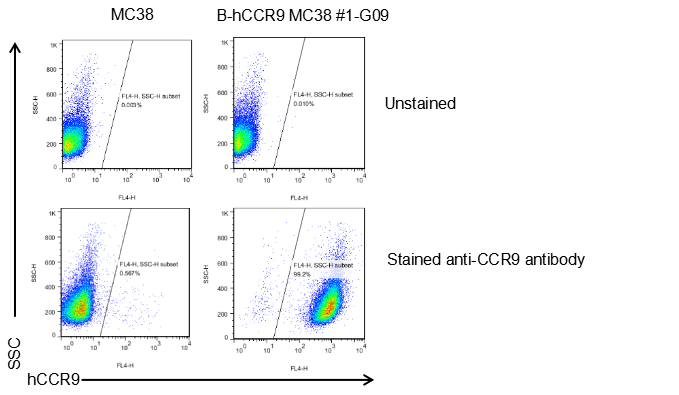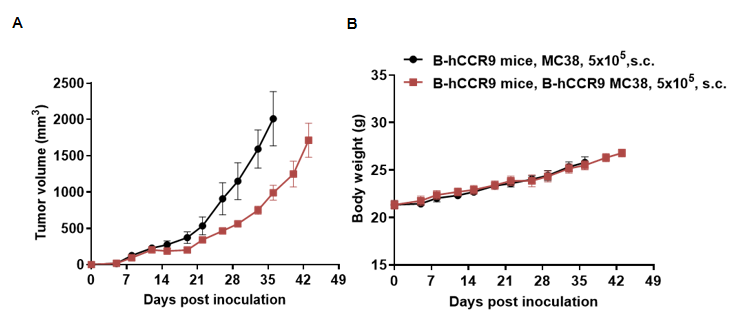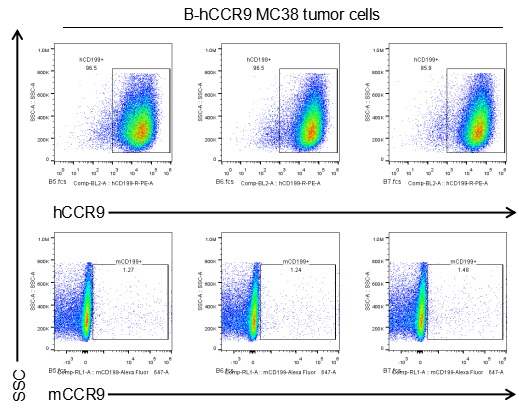|
Common name |
B-hCCR9 MC38 | Catalog number | 321825 |
| Aliases |
GPR28; CDw199; GPR-9-6; CC-CKR-9 |
Disease | Colon carcinoma |
|
Organism |
Mouse |
Strain | C57BL/6 |
| Tissue types | Colon | Tissue | Colon |


Subcutaneous homograft tumor growth of B-hCCR9 MC38 cells. B-hCCR9 MC38 cells (5x105) and wild-type MC38 cells (5x105) were subcutaneously implanted into heterozygous B-hCCR9 mice (female, 8-week-old, n=6). Tumor volume and body weight were measured twice a week. (A) Average tumor volume ± SEM. (B) Body weight (Mean± SEM). Volume was expressed in mm3 using the formula: V=0.5 X long diameter X short diameter2. As shown in panel A, B-hCCR9 MC38 cells were able to establish tumors in vivo and can be used for efficacy studies.
Tip:B-hCCR9 MC38 can not establish tumors in C57BL/6 mice, even in high dose (5E6 cells per mice).

B-hCCR9 MC38 cells were subcutaneously transplanted into heterozygous B-hCCR9 mice (n=6), and on 49 days post inoculation, tumor cells were harvested and assessed for CCR9 expression by flow cytometry. As shown, human CCR9 was highly expressed on the surface of tumor cells. Therefore, B-hCCR9 MC38 cells can be used for in vivo efficacy studies of novel CCR9 therapeutics.











